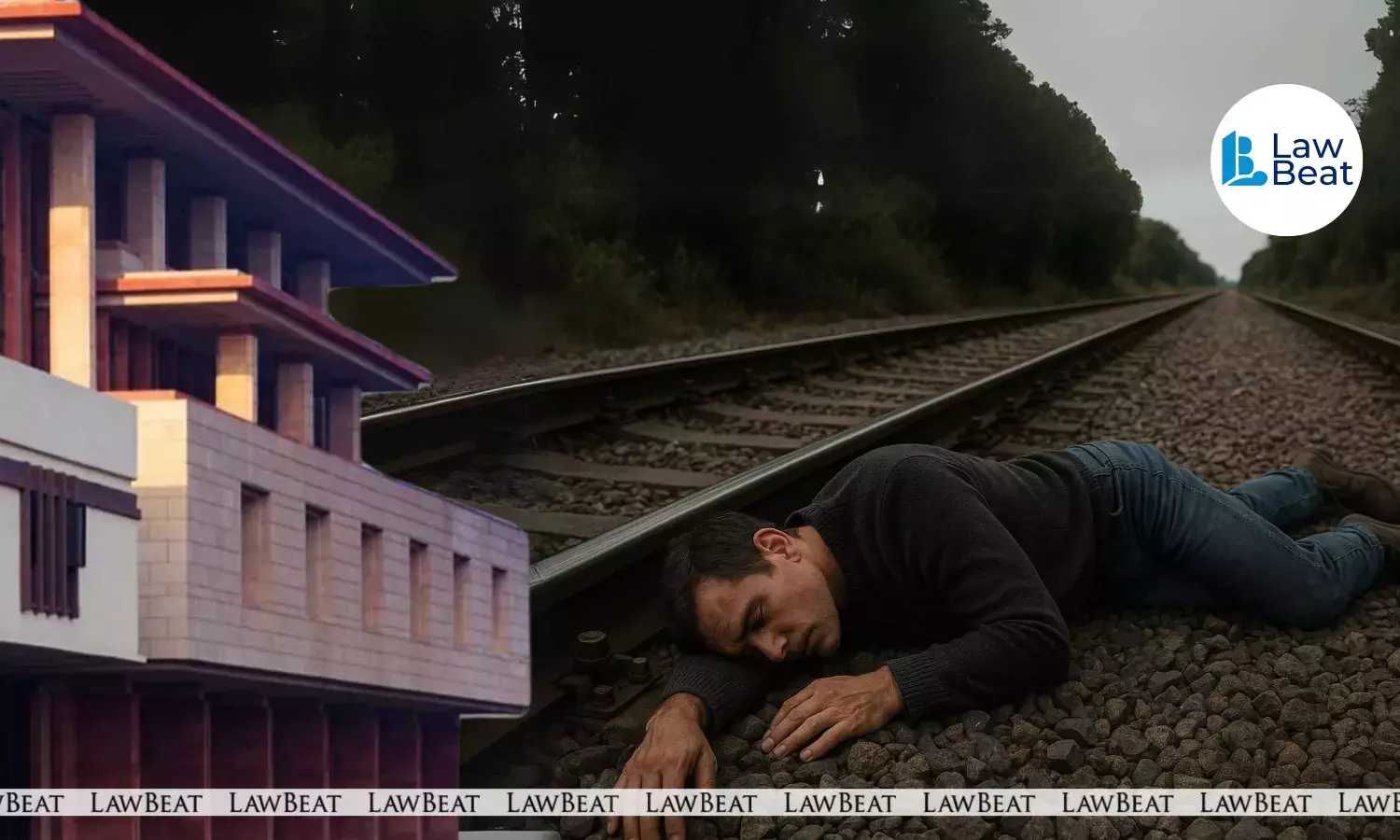Delhi HC Grants Compensation To Railway Accident Victim Caused By Overcrowding

The Delhi High Court, recently, granted compensation to a man who lost his left leg in a railway accident. The man was standing near the gate of the overcrowded general compartment when a sudden and forceful jerk caused him to lose balance and fall from the moving train. He sustained grievous injuries, including the amputation of his left leg, and sought compensation from the Indian Railways.
The bench of Justice Dharmesh Sharma noted that the allegation of the Railway that the aforementioned man was not a bona fide passenger is not fathomable in law. The bench, therefore, held that “In light of the divergent theories propounded by the respondent, none of which is credible, it is the testimony of the victim that should get precedence. It was clearly a case of the appellant/claimant sustaining injuries in an ‘untoward incident”.
The appellant filed an appeal under Section 23 of the Railways Claims Tribunal Act, 1987, challenging the judgment-cum-award dated March 27, 2017. By the said judgment, the Tribunal had dismissed the appellant’s claim for compensation arising from injuries sustained in a railway accident.
According to the appellant, on June 27, 2015, he was traveling from Faridabad to Delhi in an Electric Multiple Unit (EMU) train using a valid Monthly Season Ticket (MST). He stated that he was standing near the gate of the overcrowded general compartment when a sudden and forceful jerk caused him to lose balance and fall from the moving train. He sustained grievous injuries, including the amputation of his left leg, and sought compensation from the respondent, Indian Railways.
The Railways contested the claim, alleging that the injuries were a result of the appellant’s own negligence. It was contended that he had attempted to board a super-fast train (no.12155 Bhopal Express) and fell while doing so, which disqualified him as a bona fide passenger.
The Tribunal framed issues including whether the appellant was a bona fide passenger and whether the injuries constituted an "untoward incident" under Sections 123(c) and 124-A of the Railways Act, 1989. During proceedings, the appellant examined himself as AW-1. The respondent, however, did not produce any witnesses.
Relying on the Divisional Railway Manager’s (DRM) report, the Tribunal concluded that the appellant had attempted to board the Bhopal Express, which was not permissible under the conditions of his MST. It was held that the accident occurred due to his own negligence and, therefore, the claim was dismissed.
The court, after hearing counsel for both parties and examining the record, held that the Tribunal’s findings were speculative and unsupported by evidence. The court observed that there was no material on record to suggest that the appellant had attempted to board or deboard the Bhopal Express. On the contrary, the appellant had consistently deposed that he boarded an EMU train from platform no. 2 at Faridabad Railway Station and fell due to sudden commotion and a jerk.
“At the outset, the findings recorded by the learned RCT that the appellant/claimant was trying to board the train no.12155 Bhopal Express is purely based on surmise and conjectures, and based on no evidence. There is no material on the record to suggest that the appellant/claimant was trying to board or deboard the said express train. The testimony of AW-1/appellant/claimant is categorical that he had boarded an EMU train from platform no.2 at Faridabad and he fell out due to the commotion and sudden jerk after loosing his balance and sustained injuries”, the court held.
The court noted that the DRM Report contained conflicting narratives. While it mentioned that the Bhopal Express passed through the station around 7:59 a.m., it failed to explain how the appellant sustained injuries adjacent to platform no. 2. The court also emphasized that no witness was produced by the Railways to support the version that the appellant fell from the super-fast train.
“In view of the above, this Court has no hesitation in holding that the reasons given by the learned RCT in rejecting the claim are absolutely perverse”, the court held. Given the absence of credible evidence to the contrary, the court held that the appellant’s testimony deserved precedence. The court concluded that the injuries resulted from an "untoward incident" as defined under the Railways Act.
In view of the above, the court allowed the appeal. The appellant was awarded compensation of ₹8,00,000 along with interest at the rate of 12% per annum from the date of the accident until the date of realization.
For Appellant: Advocates D. Sabharwal and Shiv Kumar
For Respondent: SPC Jatinder Kaur
Case Title: Varun Jindal v Union (2025:DHC:3201)
